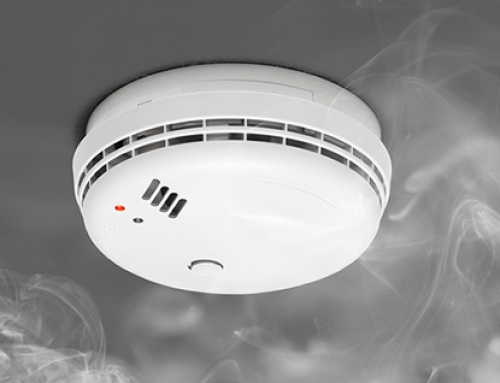Television shows like “The Mentalist” and “Lie to Me” feed off of the idea that some people have an extra ability to perceive when people, even exceptionally manipulative people, are lying. In reality, Science and Criminal Justice know far less about the limits of human truthfulness than we thought.
Here are 10 things you may not know about liars like you thought you did.
1. Lie Detector Tests Are Basically Useless
Readily recognized as the go-to interrogation tool by television crime units, the reality of the usefulness of the lie detectors has recently come into debate. The reality is, there is no proven relationship between lying and certain physiopsychological effects such as heightened pulse or heightened brain activity. Even if they did work, certain strategies aimed to “beat” polygraph tests have also found to be strikingly effective. For example, polygraph beaters sometimes beat it by making specific body motions during the test (which can heighten their pulse), psychological intervention (the interrogator can emotionally pressure the test taker) , and using psychological agents (drugs).
So to tell if someone is lying, polygraphs could just be a pretty step towards dramatic tension.

2. Eyes Have Little To Do With Lying
A person’s eyes have been romanticized throughout time as “the windows to the soul”. Through it, one could achieve a deeper understanding of the inner workings of a person’s mind-whether they want you to or not. According to popular belief, looking to the right while answering a claim indicates lying, while looking to the left indicates truth telling or recalling a specific memory. However, when the researchers of Wiseman et al measured the eye movements of groups during a lie detection test in two individual studies, and one study of eye movement during high profile press conferences, no significant patterns within the groups emerged. Lying experts have found that other body language is often a better key to analyzing the truthfulness of a claim.

3. Instead, The Feet Sometimes Have It
Although not proven via research, nervousness often results in excess energy. For a liar, this could result in abnormal bodily movement such as increased foot movement or jittering.
However, this could be in the person’s natural character, so take the information with a grain of salt.

4. Lying Too Much Can Actually Take A Physical Toll On Your Body
In literature, lying often precedes a tragic downfall or signals the path of a tragic existence. For example, Jay Gatsby lies about his entire past when he moves to New York, and that stubborn refusal to abandon the false truth that he has built up in his mind ultimately causes of his murder. Adjacently, in the real world, researchers at the University of Notre Dame have found that lying might be bad for your actual health. When researchers told one group of participants to completely avoid lying for 10 weeks, they found that measured against a control group, the non-liars had improved personal relationships, reported less physical and mental-health complaints, and felt less tenseness.

5. Less Intelligent Animals Have Figured Out How To Lie
Lying was once considered a characteristic of only animals with incredibly high functioning brains, mainly because lying takes more focus from the brain that truth telling does. However, in recent years, there have been several observed instances of animals using false social signals to gain benefit.
For example, Topi antelopes have figured out an ingenious mating strategy. If a male approaches a female to mate, she’ll check him out a bit first. If uninterested, she’ll just walk away, except if danger is in the area. Then, she’ll stay in place. Males, in adjustment to this, have found that making fake warning grunts during mating attempts may keep females around them longer, and give them a few precious shots more at wooing her. We have players all over the animal kingdom, so don’t think you’re special, guy wearing that shirt with the rhinestone wings.

6. The Type Of Smile You See On A Person Could Reveal That They Are Actually Lying
Researchers at the University of California San Francisco have figured out that people do smile for a multitude of different reasons, but nearly all are to convey a sense of contentment to a secondary party, whether sincere or not. A study done by Elkman, Friesen, and O’Sullivan also revealed that smiles are different when people are forced to lie. However, no one seems to be able to figure out the difference in these lies in real-time situations. When analyzed, observers could spot facial clues that signaled lying less than half of the time, which is about the same percentage of straight-up guessing.

7. Look For Changes In A Person’s Baseline Behavior
Looking for strangeness that creates an outlying circumstance from their normal behavior might be far more accurate than judging a liar solely upon specific physical actions.
Studies by the Jay College of Criminal Justice found just 54% accuracy rating upon judging a person’s behavior and their statements. When judging the truthfulness of a claim, take into account the amount of eye contact they normally give, and the gestures they commonly make. Or, say, if they are hiding the crown jewels behind their back.
That’d be a good tipoff.

8. Self-Deception Is An Advanced Adaptive Mechanism, And We Often Use It To Better Deceive Others
The reason that people on reality shows can actually believe in their talent when they are clearly untalented is through self-deception. Their family and friends may lie to them so much about being talented, that they begin to believe it.
Famous thought leader and author Robert Trivers finds that within academia, over 90% of academics claim to believe themselves to be in the top half of their field. Trivers has a book on the subject, Deceit and Self-Deception: Fooling Yourself Better to Fool Others, that discusses the idea of using self-deception as a tool in which to better deceive others. What it doesn’t explain is why I’m soooooooo good looking.

9. A Smooth Counterattack Is Often The Best Defense Against Lie Accusations
Because most people are uncomfortable accusing others, counterattacking against lie accusations can often be the most successful method of evasion.
That’s why “you have toothpaste on your face”, “You have toothpaste on your face!!” is the single most intelligent two-person dialogue that one can have.

10. During A 10 Minute Conversation, The Average Person Tells 2 to 3 Lies
121 students of the University of Amherst in Massachusetts participated in a study in which they had 10 minute casual conversations with a researcher, which was then recorded. Afterwards, participants were shown the video and told to identify any lies, no matter how small.
On average, people identified 2-3 lies.
The facts above support the notion that the world is filled with people with whom deceit is an everyday practice.
BE alert and be safe; especially at home.

Signup Below & Get a Free Quote Today
A Safer and More Secure Home Is Only a Click Away.
Your home should be your safe-haven, a place that you are at peace. If you do not feel safe, then SkyCover Home Security & Automation can help you get a better Peace of Mind. Check out our Home Security and Automation packages, that will help you better secure your home and family, and also take a look at how easy it is to turn your home into a SMART home.













Leave A Comment